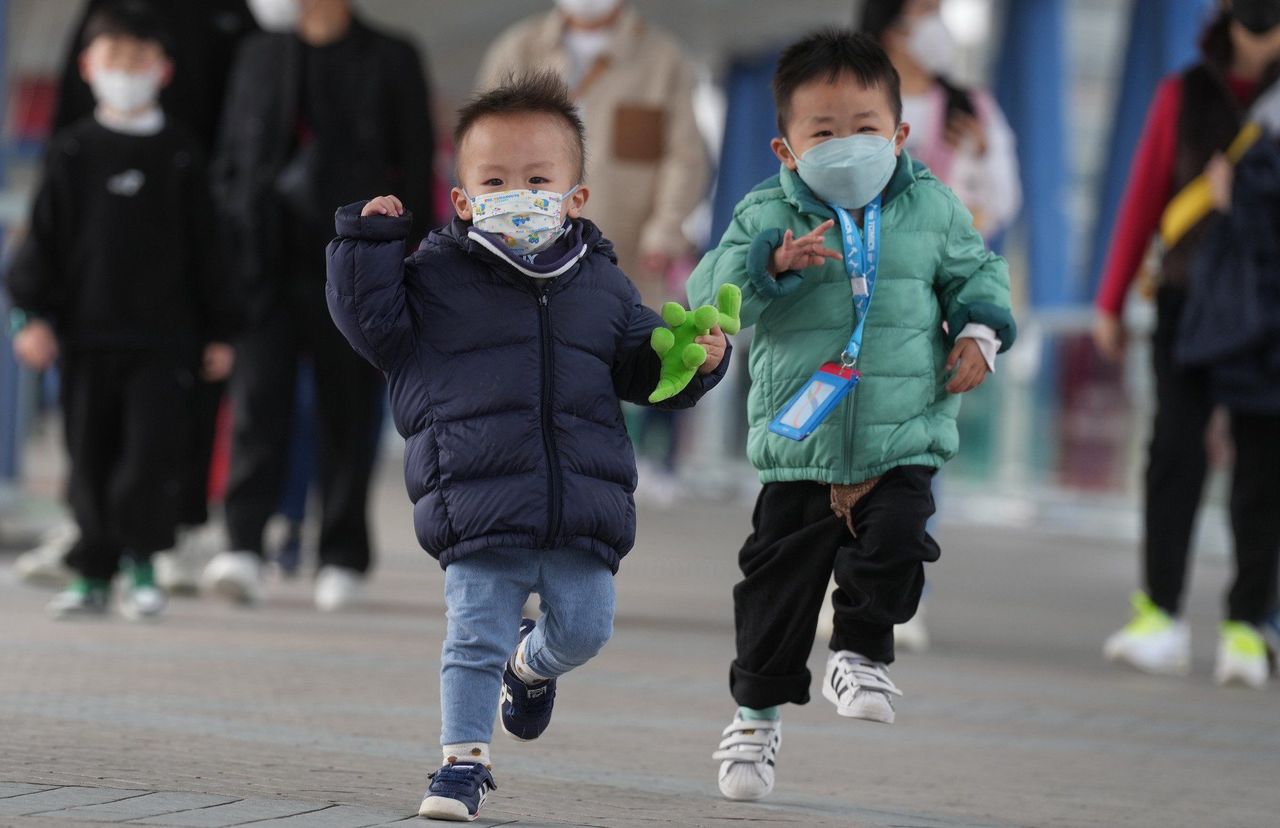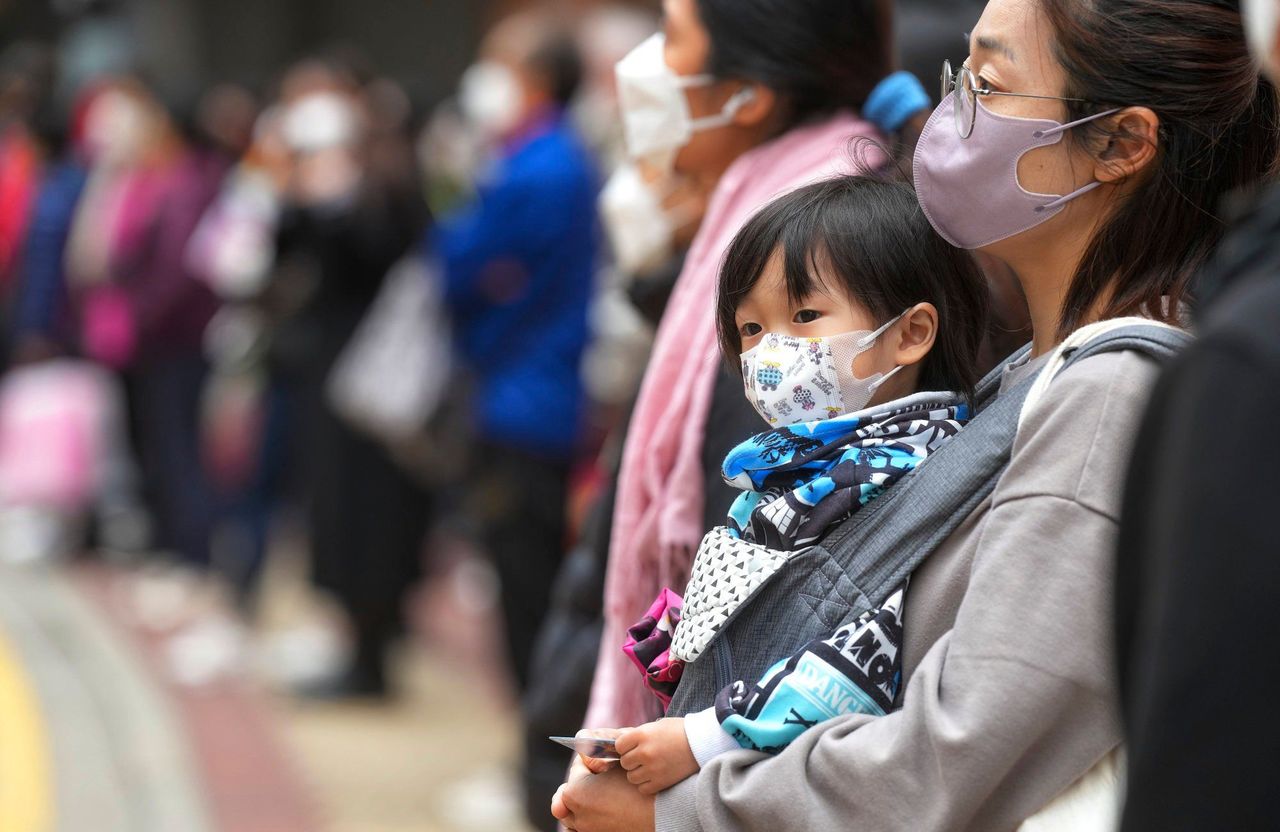Hong Kong News

How I mothered 2 young girls through Hong Kong’s long mask mandate
After almost three years, tomorrow I will not be having a struggle session with my one-year-old daughter.
With the mask mandate finally being removed in Hong Kong from Wednesday, I no longer have to worry if Maia has a face covering each time we step outside our door.
Each day that I’ve had to put it on her, I know she will pull it off just as swiftly with her tiny hands, often even before my back is turned. The masks, most of the time, would be drenched in drool within the hour, leaving me pondering the wisdom of masking a toddler.
As the pandemic has eased in the past few months, I have allowed Maia to go “naked”, taking refuge in the exemption to compulsory masking of toddlers below the age of two. But it is not easy to stand your ground when you get censorious glares suggesting your child is ill-disciplined for not being masked.
 Many young children in Hong Kong have only known the city’s strict adherence to mask-wearing.
Many young children in Hong Kong have only known the city’s strict adherence to mask-wearing.
Maia was born at the height of the fifth pandemic outbreak in February last year. Amid a snowballing Omicron cluster at Kwai Chung Estate at the time, I was reminded to keep my mask on even in the delivery room.
My eldest daughter, Andrea, who is four now, had a brief taste of freedom before she started having to wear a mask by the time she was 15 months old. She has lived longer with a mask than without one.
As a resident who went through the Sars outbreak in 2003, I have always been proud of Hongkongers’ vigilance and self-discipline, from the beginning of the Covid-19 pandemic all the way to the bitter end.
We masked up to protect one another before our government asked us to; we cleaned our hands with sanitisers without anyone reminding us and wiped down surfaces like pros, long before the campaigns and slogans set in.
But our patience wore thin when the mask mandate persisted while other countries moved on. For me, the impact of masks has been deeply personal as I saw up close how it affected my children’s development.
Our hearts sank the day we heard Andrea telling us, while heading home from school, that we should not speak when we do not have our masks on.
She said it so innocently, as if it was a fact everyone should know.
I do not blame the teachers at all, who were only enforcing the guidelines issued by the Education Bureau at the time which said pupils should be reminded to refrain from talking when their masks were taken off to eat or drink.
Other measures under the tough guidelines, which also applied to primary and secondary schools, included requiring schools to install partitions between pupils at mealtimes and ensuring they were not seated facing each other while eating.
 Mask-wearing for young children has been linked to speech issues.
Mask-wearing for young children has been linked to speech issues.
My heart ached realising she had yet to experience normal school life in nursery or kindergarten, where chatter, whoops of delight, tears of despair and peals of laughter are heard in turn, almost in equal parts.
Indeed, her teacher told me that Andrea could not help but stare at her during meal times when they were having lunch together, so unfamiliar she was with seeing the full face of a person who wasn’t a family member.
It also reminded me of how anxious Andrea was when she first attended virtual classes during school suspensions.
She tried to hide from the camera and avoided seeing the teacher. Yes, those were the rare occasions when she could see her teachers’ faces in full and not just their eyes and foreheads.
Andrea probably still has no idea what her classmates who do not opt to stay for lunch look like, even after two years of being in the same place for more than three hours each day.
Even in their official class photos, an important piece of memorabilia of her kindergarten years that she should treasure, everyone is masked and unrecognisable – so you can imagine that will be even more so later in life when she looks back on it.
Official figures show that the number of children in Hong Kong under 12 with speech-related problems rose significantly during the pandemic from 4,300 in 2019, to 4,570 in 2020 and 5,401 in 2021.
Experts attribute the trend to the fact that children could not observe how others moved their mouths while speaking, with some also raising concerns about their ability to read others’ emotions.
Andrea, too, was a slow talker, who did not begin speaking until she was 2½ years old. The compulsory masking definitely did not help her and neither did the suspension of school, which happened from time to time between 2020 and 2022.
Lifting the mask mandate is just the beginning for her and other young children in our city.
As some paediatricians rightly point out, it probably takes time to explain to children that being without a mask, rather than masked, is actually “the norm”. Many will probably feel anxious with their masks off – a relatable sentiment for some adults.
I appreciate the government adjusting its policies last year by refraining from ordering yet another citywide school suspension after taking the developmental well-being of children into account.
If there is one lesson to be drawn over the masking of children, I hope policymakers will study the potential lifelong impact, if not harm, it could cause our young ones before they make such draconian moves.
The pandemic was a global catastrophe and millions lost their lives. But among those who survived, let’s not forget the children in our midst whose struggles will last a while longer.
If they are quieter than you were growing up, less willing to say hello or just seem disengaged overall, be empathetic to them.











